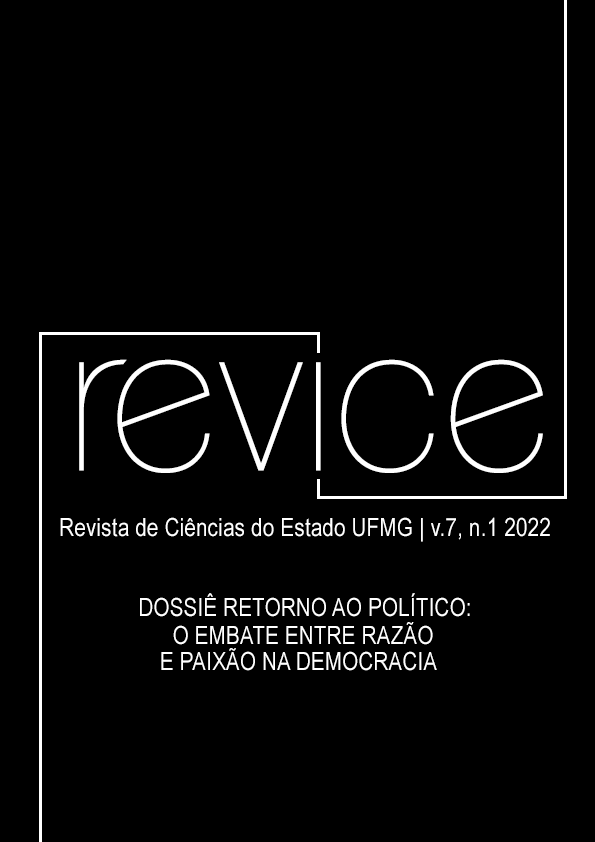What is academic freedom?
DOI:
https://doi.org/10.35699/2525-8036.2022.39319Keywords:
Philosophy of Law, Academic freedom, Freedom of speechAbstract
Throughout the last years academic freedom has been the target of many disputes. This does not happen by chance, considering that teaching and researching are fundamental to the formation of the democratic debate and to the pursuit of knowledge. All this scenary makes academic freedom particularly fragile. The work aimed to study it in detail, dividing it into: the student's freedom regarding the teacher; teacher autonomy considering the institution; teacher autonomy considering the government; and, finally, freedom and autonomy of the institution itself considering the government. When thinking about defense mechanisms for Academic Freedom, it is first necessary to question until what extent it intertwines with Freedom of Expression, and whether the protection of the latter is enough to protect the former. In the study of administrative investigations, it was discovered that Academic Freedom has a broader concept than Freedom of Expression, as it involves, among others, administrative and researching aspects. The delimitation of this freedom involves differences in intramural and extramural discourses, in addition to ethical behavior standards. It is also necessary to understand that educational autonomy goes through administrative and financial aspects. Finally, we understand that costs on education is nothing more than true investments in the future of the country.
Downloads
References
AMERICAN ASSOCIATION OF UNIVERSITY PROFESSORS. AAUP’S 1915 Declaration of Principles on Academic Freedom and Tenure, 1915.
BRASIL, Constituição da República, 1934. Disponível em http://www.planalto.gov.br/ccivil_03/constituicao/constituicao34.htm.
BRASIL, Constituição da República, 1967. Disponível em http://www.planalto.gov.br/ccivil_03/constituicao/constituicao67.htm.
BRASIL, Constituição da República, 1988. Disponível em http://www.planalto.gov.br/ccivil_03/constituicao/constituicao.htm.
BARENDT, Eric. Academic Freedom and the Law: A Comparative Study. Editora Hart Publishing. Londres, 2010.
DWORKIN, Ronald. We need a new interpretation of academic freedom. In: MENAND, Louis (ed). The future of academic freedom. Chicago & London: The University of Chicago Press, 1996.
FUCHS, Ralph F. Academic Freedom: Its basic philosophy, function and history, em Law and Contemporary Problems. 1963. Disponível em https://www.jstor.org/stable/1190640?readnow=1&seq=1#page_scan_tab_contents
GRAY, Mary. Academic Freedom and Nondiscrimination: Enemies or Allies, 66 Tex. L. Rev. 1591, 1988.
GUSMÃO, Daniele Cristina Frediani; HONORATO, Tony. Ideais de Homem Civilizado Veiculados nos Livros Didáticos de Educação Moral e Cívica na Ditadura Civil-militar. História da Educação, 2019.
HALL, Martin. Academic Freedom and University: 50 years of debate, South African Journal of Higher Education, 2006. Disponível em http://usir.salford.ac.uk/id/eprint/2626/. Acesso em 16 de abril de 2022.
MACFARLENE, Bruce. Re-framing Student Academic Freedom: a capability of perspective. Higher Education, v. 63, n. 6, p. 719-732, 2012.
MARMOR, Andrei. Two Rights of Free Speech. Ratio Juris, v. 31, n. 2 p. 2, 2018.Disponível em: https://philosophy.cornell.edu/sites/phil/files/Two%20Rights%20of%20Free%20Speech%209%2016%20Marmor.pdf. Acesso em 20 de abril de 2022.
MENDES, Gilmar Ferreira, BRANCO, Paulo Gustavo Gonet. Curso de Direito Constitucional. São Paulo: Editora Saraiva, 11ª ed, 2016.
PAULSEN, Friedrich. German Universities and University Studies “Die deutschen Universitäten und das Universitätsstudium". Nova Iorque: Editora Charles Scribner`s Sons, 1906.
SKIDMORE, Thomas E., Brasil - de Castelo a Tancredo – 1964-1985. São Paulo: Ed. Paz e Terra, 1988.
SILVA, José Afonso da. Curso de Direito Constitucional Positivo. São Paulo: Editora Malheiros, 37ª ed., 2013.
TAKATA, Roberto. A refutação de um argumento: cabeças e sentenças. Revista Eletrônica de Jornalismo Científico, 2015. Disponível em: https://www.comciencia.br/comciencia/handler.php?section=8&tipo=resenha&edicao=111. Acesso em 28 jul. 2022.
TERRY, Don. Leading race “scientist” dies in Canada. Salon, 2012. Disponível em: https://www.salon.com/test/2012/10/06/leading_race_scientist_dies_in_canada/. Acesso em 3 mar. 2022.
TIERNEY, William G., LANFORD, Michael. The Question of Academic Freedom: Universal Right or Relative Term. Fronties of Education in China, v.9, n.1, 2014.
UNESCO. Recomendação relativa à condição do pessoal docente. Conferência Intergovernamental Especial sobre a Condição dos Professores. Paris, 1966.
United States Holocaust Memorial Museum. Indoctrinating Youth. Holocaust Encyclopedia. Disponível em https://encyclopedia.ushmm.org/content/pt-br/article/indoctrinating-youth. Acesso em 1 de março de 2022.
YUDOF, Mark G., Three Faces of Academic Freedom. Loyola Law Review, v. 32, n. 4, 1987.
Downloads
Published
How to Cite
Issue
Section
License
Copyright (c) 2022 Laura Gandra Laudares Fonseca

This work is licensed under a Creative Commons Attribution-NonCommercial-ShareAlike 4.0 International License.
1. Os conteúdos dos trabalhos são de exclusiva responsabilidade de seu autor.
2. É permitida a reprodução total ou parcial dos trabalhos publicados na Revista, desde que citada a fonte.
3. Ao submeterem seus trabalhos à Revista os autores certificam que os mesmos são de autoria própria e inéditos (não publicados em qualquer meio digital ou impresso).
4. Os direitos autorais dos artigos publicados na Revista são do autor, com direitos de primeira publicação reservados para este periódico.
5. Para fins de divulgação, a Revista poderá replicar os trabalhos publicados nesta revista em outros meios de comunicação como, por exemplo, redes sociais (Facebook, Academia.Edu, etc).
6. A Revista é de acesso público, portanto, os autores que submetem trabalhos concordam que os mesmos são de uso gratuito.
7. Constatando qualquer ilegalidade, fraude, ou outra atitude que coloque em dúvida a lisura da publicação, em especial a prática de plágio, o trabalho estará automaticamente rejeitado.
8. Caso o trabalho já tenha sido publicado, será imediatamente retirado da base da revista, sendo proibida sua posterior citação vinculada a ela e, no número seguinte em que ocorreu a publicação, será comunicado o cancelamento da referida publicação. Em caso de deflagração do procedimento para a retratação do trabalho, os autores serão previamente informados, sendo-lhe garantido o direito à ampla defesa.
9. Os dados pessoais fornecidos pelos autores serão utilizados exclusivamente para os serviços prestados por essa publicação, não sendo disponibilizados para outras finalidades ou a terceiros.


